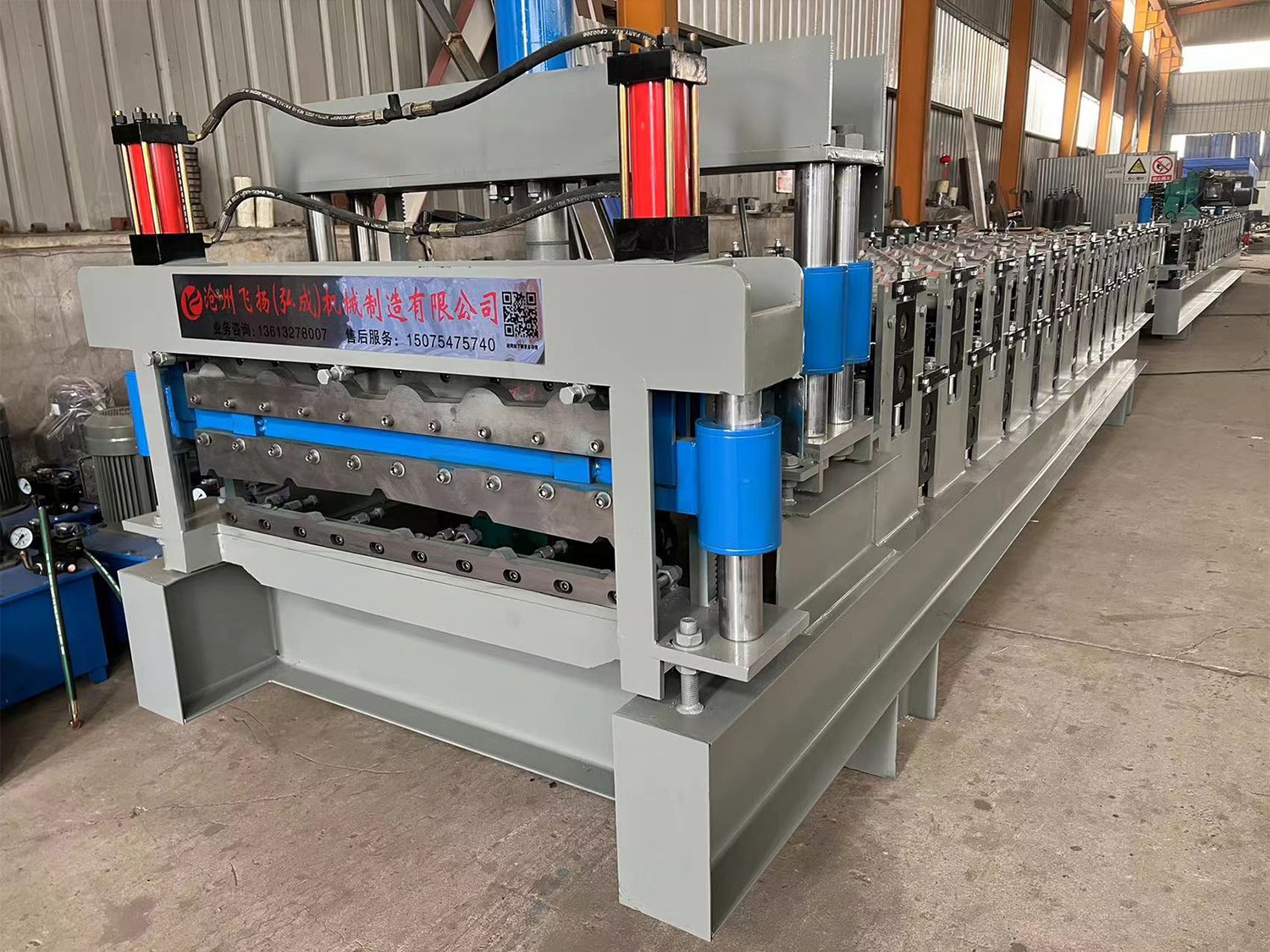Introduction
A trapezoidal roofing machine is a versatile and essential tool used in the construction industry for the production of trapezoidal roof panels. These machines allow for efficient and precise manufacturing of roofing materials, ensuring high-quality and durable roofs for various structures. In this article, we will explore the various aspects and benefits of trapezoidal roofing machines.
The Function of a Trapezoidal Roofing Machine
A trapezoidal roofing machine is designed to transform raw materials, such as galvanized steel or aluminum coils, into trapezoidal roof panels. The machine operates by feeding the coils through a series of rollers that shape and cut the material according to the desired dimensions. The end result is a trapezoidal-shaped panel with raised ribs, which provides excellent strength and resistance to external forces.
Advantages of Using a Trapezoidal Roofing Machine
Investing in a trapezoidal roofing machine offers numerous advantages for both roofing contractors and building owners. Here are some key benefits:
1. Increased Efficiency
Trapezoidal roofing machines automate the production process, allowing for faster and more efficient manufacturing of roof panels. This improves productivity and reduces labor costs, making it a cost-effective solution for roofing projects.
2. Superior Quality
These machines ensure consistent and precise panel dimensions, resulting in high-quality roofing products. The trapezoidal shape of the panels enhances their load-bearing capacity, making them suitable for various types of structures.
3. Versatility
Trapezoidal roofing machines can produce panels of different lengths and thicknesses, providing flexibility for various roofing applications. This versatility makes them suitable for both residential and commercial projects.
4. Customization Options
With a trapezoidal roofing machine, it is possible to create panels with customized designs and patterns. This allows for unique and visually appealing roofs that can enhance the overall aesthetics of a building.
5. Durability
Trapezoidal roof panels manufactured using these machines are highly durable and long-lasting. They offer excellent resistance to harsh weather conditions, such as heavy rain, snow, and strong winds.
6. Cost Savings
By producing roof panels on-site using a trapezoidal roofing machine, contractors can save on transportation costs associated with purchasing pre-made panels. Additionally, the reduced labor requirements contribute to overall cost savings.
7. Energy Efficiency
Trapezoidal roof panels often have insulation capabilities, which help improve energy efficiency in buildings. The thermal properties of these panels can contribute to reduced heating and cooling costs, making them an eco-friendly choice.
8. Quick Installation
Using trapezoidal roof panels manufactured by a roofing machine allows for faster and easier installation compared to traditional roofing materials. This can significantly reduce the overall construction time of a project.
9. Low Maintenance
Trapezoidal roof panels require minimal maintenance, saving both time and money for building owners. Their durable and corrosion-resistant properties ensure long-term performance with minimal upkeep.
10. Sustainability
As trapezoidal roof panels are made from recyclable materials, they contribute to sustainable construction practices. The use of these panels can help reduce waste and minimize the environmental impact of roofing projects.
Conclusion
A trapezoidal roofing machine is an indispensable tool for the production of high-quality and efficient roof panels. Its numerous benefits, such as increased efficiency, superior quality, customization options, and energy efficiency, make it a preferred choice for roofing contractors and building owners. Investing in a trapezoidal roofing machine can lead to cost savings, faster installation, and long-term durability. By embracing this advanced technology, the construction industry can enhance the quality and sustainability of roofing systems.

